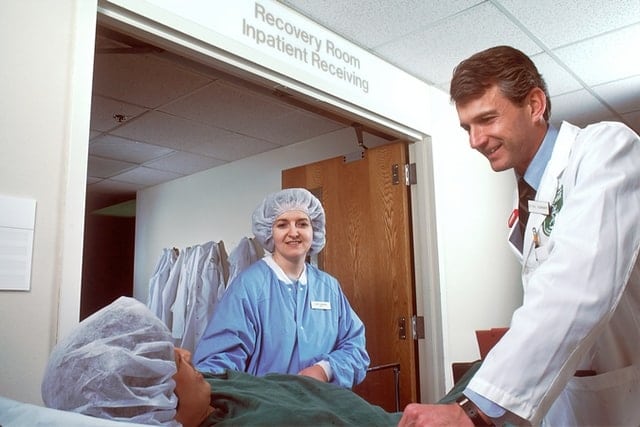Written by Senior Litigation Executive, Kate Goodman
At the date of this article, COVID 19 has claimed the lives of 59,699 people who have died within 28 days of a positive COVID test. The number of ‘excess’ deaths has now exceeded 70,000 and whilst a vaccine is days away from being administered, the number of deaths is unfortunately, likely to continue to increase for some time to come.
As early as March 2020, it was reported that doctors were having to make impossible decisions as to who received care, and what care they received. At the time, the British Medical Association issued guidance for clinicians to assist with the decision of who should and should not receive care. This came on the back of concerns that the NHS would run out of ventilators and intensive care beds.
Concerns for the most vulnerable
At the onset of the pandemic, concerns were raised that those most vulnerable to losing their lives to the virus, were at risk of having ‘Do Not Attempt Cardiopulmonary Resuscitation’ decisions (DNACPR) made without their informed consent. Examples were seen of GP surgeries writing to vulnerable patients and asking them to complete DNACPR forms essentially to reduce the burdens on the NHS during the pandemic. Such letters were understandably met with horror by such patients and apologies issued.
Today, the Care Quality Commission has confirmed that their investigations have showed that DNACPR orders may have been made without patients informed consent.
The law regarding consent is governed by the case of Montgomery v Lanarkshire Health Board [2015]. In this case, it was said that the test for whether valid consent was obtained should be whether “a reasonable person in the patient’s position would be likely to attach significance to the risk [of the treatment/decision], or the doctor is or should reasonably be aware that the particular patient would be likely to attach significance to it” and therefore whether they were consented to said risks.
A right to provide informed consent
Whilst it is acknowledged that even within a hospital, surviving an attempt at cardio-pulmonary resuscitation (CPR) is low, a patient nonetheless has a right to provide their informed consent as to whether they wish to undergo CPR in the event this is required, and under what conditions they do not wish to be resuscitated. It is a patient’s prerogative to decide whether they want to be resuscitated, risk the complications and gamble on chance of the resuscitation being successful. The patient’s life, after all, is on the line in such circumstances.
The GMC guidance for discussing a DNACPR states:
“As with other treatments, decisions about whether CPR should be attempted must be based on the circumstances and wishes of the individual patient. This may involve discussions with the patient or with those close to them, or both, as well as members of the healthcare team. You must approach discussions sensitively and bear in mind that some patients, or those close to them, may have concerns that decisions not to attempt CPR might be influenced by poorly informed or unfounded assumptions about the impact of disability or advanced age on the patient’s quality of life.
“If a patient lacks capacity to make a decision about future CPR, the views of members of the healthcare team involved in their care may be valuable in assessing the likely clinical effectiveness of attempting CPR and whether successful CPR is likely to be of overall benefit. You should make every effort to discuss a patient’s CPR status with these healthcare professionals.”
A blanket use of Do Not Resuscitate orders
This guidance applies both where someone is unwell as a result of COVID-19, or has any other illness.
During the pandemic, there were suggestions of ‘blanket’ use of DNACPR orders, particularly in care homes and for those with learning difficulties. Such DNACPR decisions would be unbelievably inappropriate.
A failure to obtain informed consent to a DNACPR would be considered a breach of duty of care, but more so, may also amount to discrimination or even a breach of the patient’s human rights.
Further, given the ‘rationing’ of some medical care during the Pandemic, it can be anticipated that some patients will understandably have concerns that they or their loved ones received suboptimal care as a result of such decisions to limit who received treatment.
If you or a loved one have concerns about a DNACPR decision in place, in the first instance you should contact the medical team to discuss the decision and whether this should remain in place. You may also wish to consider a complaint to PALS (if the decision was made in hospital) or to the GP practice to review the decision.
Sources:
https://www.bma.org.uk/bma-media-centre/bma-publishes-ethics-guidance-for-doctors-making-difficult-covid-19-decisions-on-the-front-line
https://www.bbc.co.uk/news/uk-wales-52117814
https://www.bbc.co.uk/news/health-55163009

